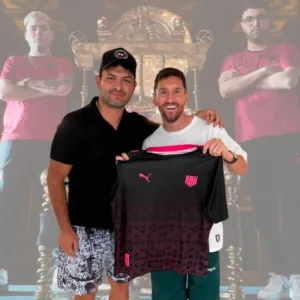Brazil’s Sogolo — Brazilian soccer player Vinícius Júnior was a student at a small, crowded, and disorderly primary school where the students regarded him as a hero.
Every time a goal is scored, each of the twelve boys playing a quick-fire game of foosball at recess screams out the name of a member of the national soccer squad.

The unquestionable favorite for 11-year-old Vinícius Júnior or “Vini” Jnior. In between rounds, da Silva exclaims, “He worked to get where he got and he went to school here.”
At the FIFA World Cup in Qatar, the 22-year-old forward for Brazil and Spanish club Real Madrid has wowed spectators by scoring the tournament’s opening goal against South Korea on Monday. The fans are expecting that he would continue it when Brazil plays Croatia on Friday.

He launched an educational app Vincius Jnior was born and raised in So Gonçalo, a rambling metropolis located across the bay from Rio de Janeiro. He left thanks to soccer, and now he wants to aid others who are still residing here with his new foundation.
He had a group create a learning application that teaches fundamental skills using soccer terminology. His foundation, the Vini Jr. Institute, gave his former primary school ten brand-new smartphones with the app.
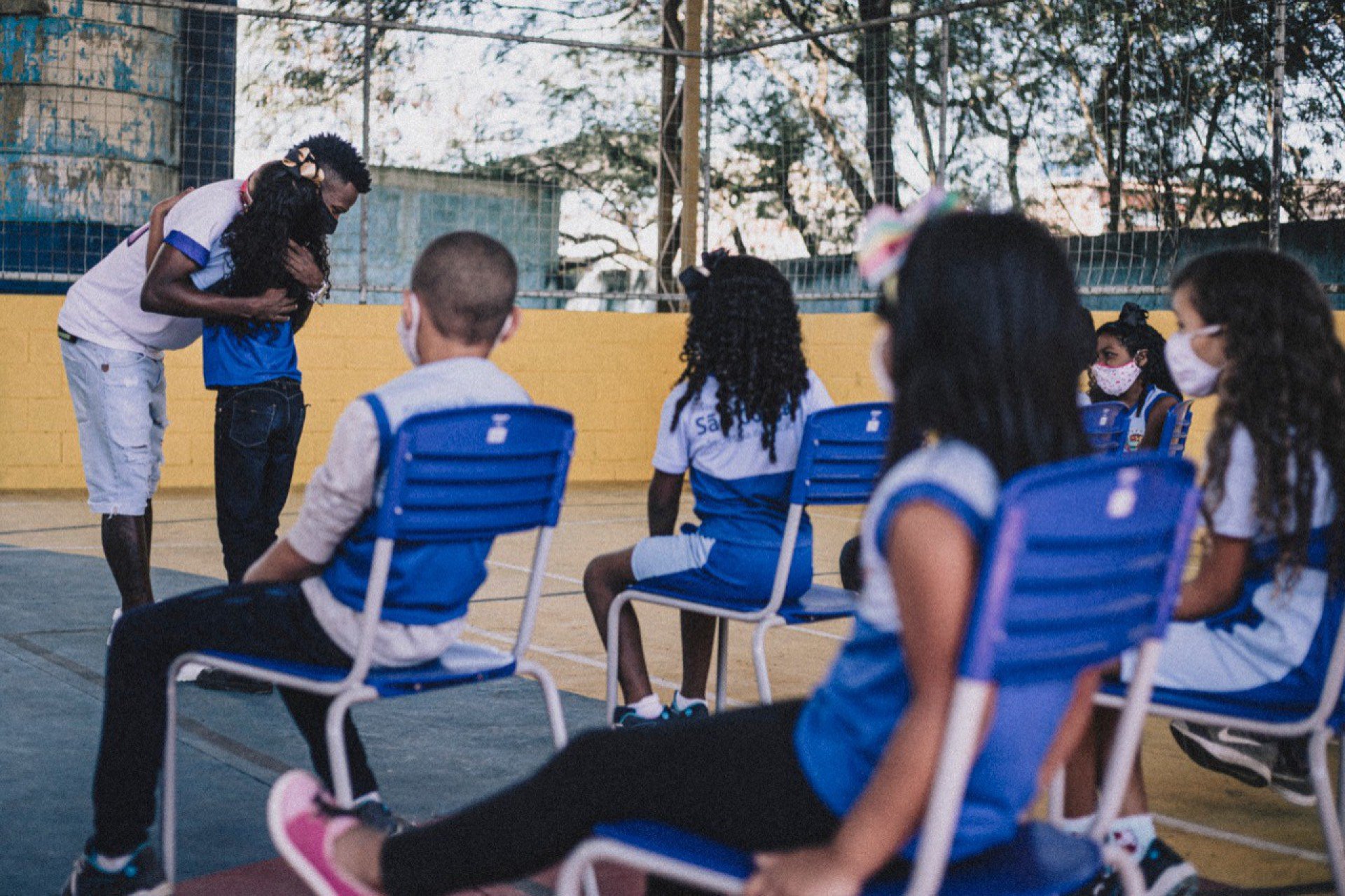
His fifth-grade teacher, Ana Cristina Pereira dos Santos, believes that in order to excel, pupils must overcome several obstacles. It’s difficult, she says, because so many children are drawn into crime and drug use here.
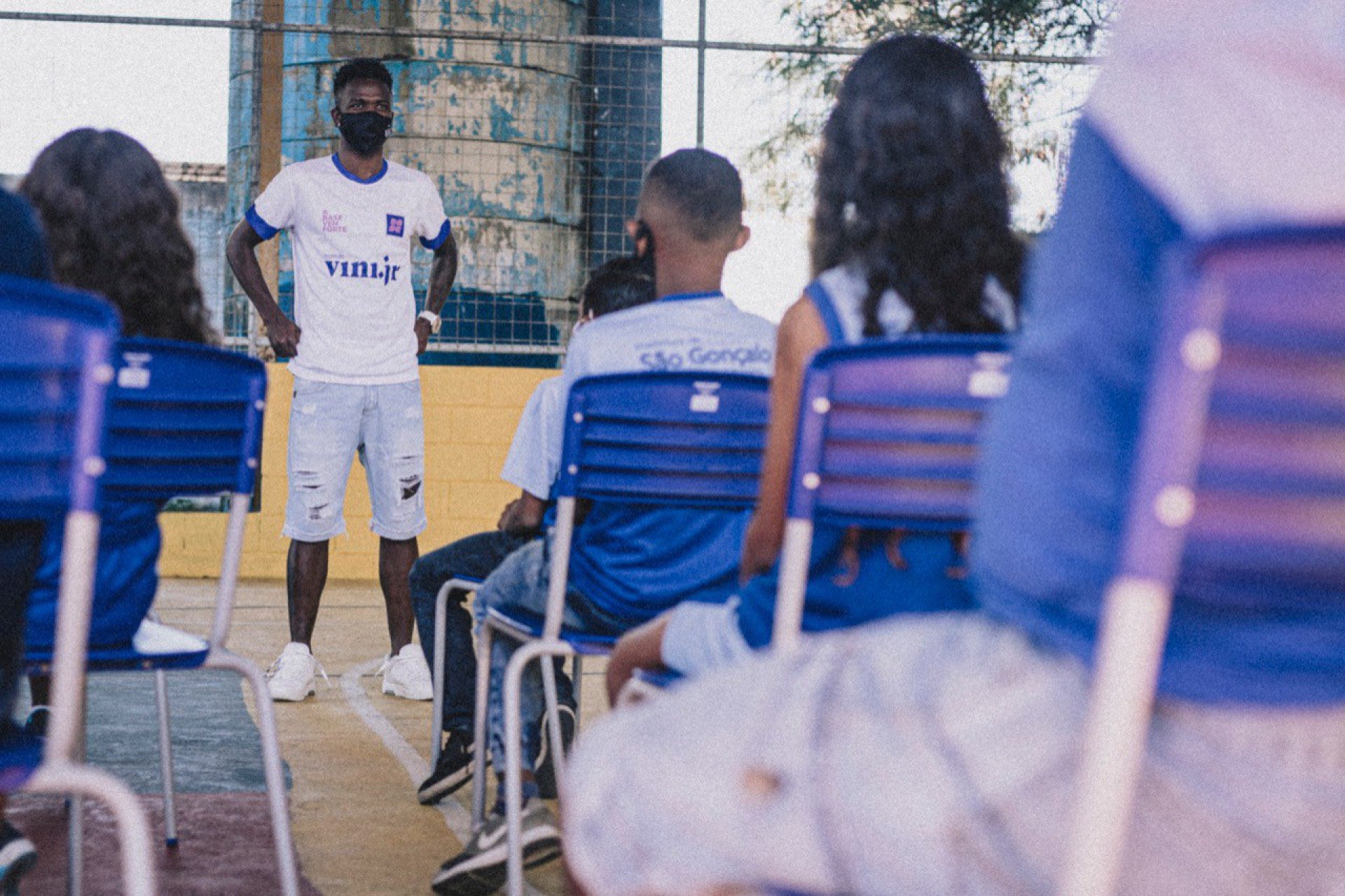
Dos Santos recalls Vincius Jnior as a kind, cheerful child who was always grinning and eager to go outside and play.
He claims that he found school to be monotonous and wants to make it exciting.
The soccer player is heard saying, “The institute helps me get closer to the people who helped me back there when I was 16, 15 years old, and repay the affection they all have for me,” in a video the charity produced about its efforts.

In a calm classroom with recently painted walls and floor to ceiling Vincius Junior posters, teachers use the BASE app.

However, when NPR recently visited the school, the teachers weren’t utilizing the program. They said they had to concentrate on catching up instead after only returning to work after a strike that lasted more than 30 days. The internet was also unavailable, as it had been for a while in the neighborhood.
There weren’t always institutions named after soccer players
The Brazilian soccer stars are relatively new to founding nonprofits. According to Marcos Uchôa, a seasoned correspondent for Brazilian broadcaster Globo TV, this is “mostly because big money is very recent in football.” Therefore, rather than going to charity because the Brazilian players were impoverished, “the majority of the money would go to help their families and their futures.”
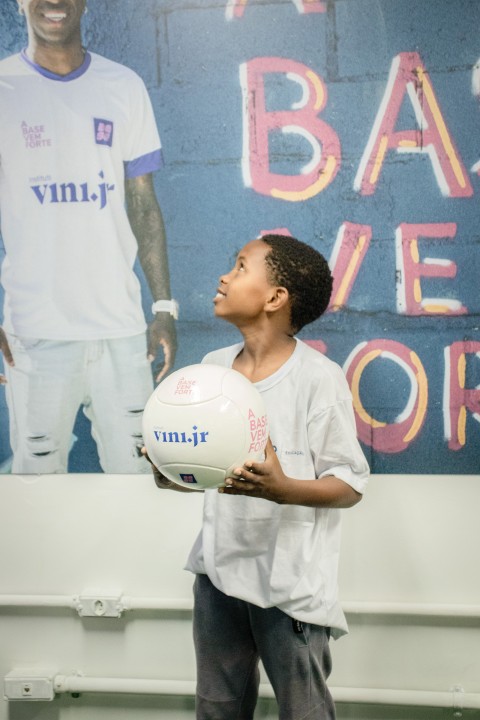
However, Uchôa claims that Vincius Junior is playing and earning better than ever in Europe.
He scored the game-winning goal in the Champions League championship game in May, giving Real Madrid its club-record 14th triumph.
However, several viewers were more interested in Vinicius Junior’s joyful dancing. They even threw things at him while taunting him with racial comments. On television, a Spanish agency advised him to stop “monkeying around.” The agent then expressed regret.
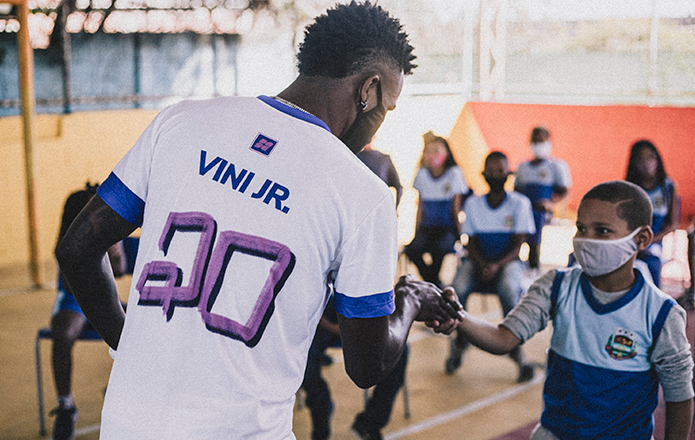
Vincius Junior answered calmly and maturely in a video message on Twitter, which is exceptional for a wealthy player of his age. He grinned wryly into the camera and remarked, “They believe happiness can disturb some. “It probably bothers me more when a Black Brazilian wins in Europe,”
He, however, is adamant that he will continue dancing.
